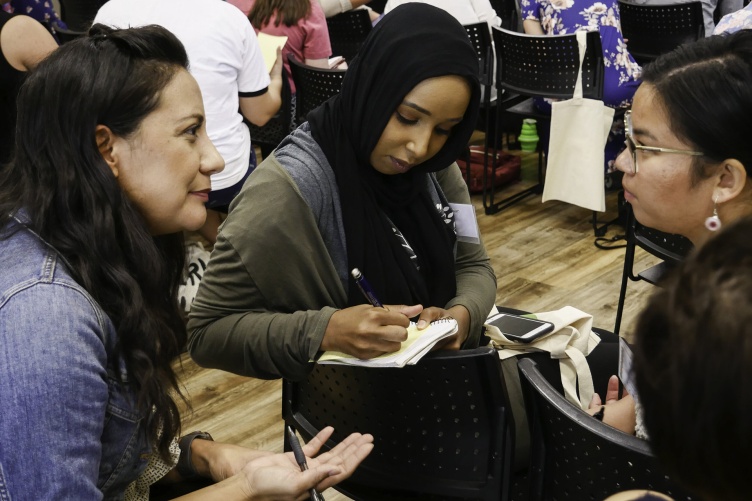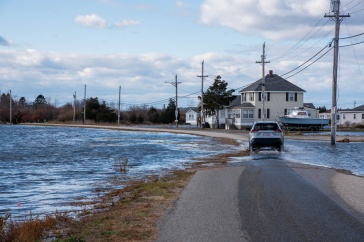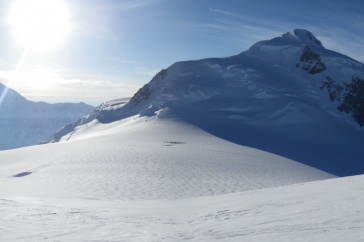
Photo courtesy of the ReclaimingSTEM Institute website.
When Tamara Marcus ’24G began pursuing her graduate student career, she found herself struggling — not due to the research topic or heavy workload, but because of the extra burdens she navigated as a Black woman in a predominantly white, cisgendered space in the STEM fields. At first, Marcus felt she had to stifle parts of her core identity in order to survive in academia; it was an uncomfortable feeling, and it posed a threat to the success of her early scientific career. In collaboration with colleagues across the U.S., she began focusing on the role that science communication could play in creating more inclusive spaces within STEM to help students like her thrive.
To that end, Marcus recently co-authored a paper in the journal Frontiers focusing on the purpose and evolution of the ReclaimingSTEM training course — a science communication and policy workshop that offers a healing approach and centers around the experiences, needs and wants of marginalized communities. The program represents a radical shift in perspective and content that’s been shared with more than 700 workshop participants around the world; Marcus calls it a powerful tool that allows scientists who are disabled, queer, people of color, and those who are at the intersection of multiple underrepresented groups to feel welcome in their STEM fields, and thus more likely to excel in their careers.
"I needed a setting where my voice — and the voices of other underrepresented people in the STEM fields — had the space and depth to explore, and ReclaimingSTEM directly suits those needs.”
“You can’t do the work and be successful if you don’t feel safe and comfortable in your surroundings,” says Marcus, a Ph.D. candidate in the UNH natural resources and Earth systems sciences program. “I needed a setting where my voice — and the voices of other underrepresented people in the STEM fields — had the space and depth to explore, and ReclaimingSTEM directly suits those needs.”
The ReclaimingSTEM workshop program was developed in 2018 by Evelyn Valdez-Ward, who is currently the executive director for the ReclaimingSTEM Institute — the organization behind the workshops — and a postdoctoral scholar at the University of Rhode Island. The institute’s mission, according to its website, is to “build leadership and communication skills with marginalized scientists, in order for scientists and scientific institutions to address, repair, and heal from historical and ongoing systems of oppression.” The ReclaimingSTEM workshops offer spaces where guest speakers, most of whom are from underrepresented groups within STEM fields, and attendees can speak candidly about their work, share experiences and connect with one another to create a network that exists long after the workshop is over.
"Navigating our identities in STEM can sometimes make us feel like we need to hide, or diminish our value," Valdez-Ward says. "The most important aspect of this workshop is the community that is built. It may be the first time where marginalized folks feel like their voices and their identities are being valued and affirmed."
Marcus has long been passionate about inclusivity in STEM research and science communication; she was an ambassador for the American Geophysical Union’s Voices for Science Program in 2019, and she received a 2019 Switzer Fellowship to help make science more accessible. She collaborated with the ReclaimingSTEM team to bring one of the workshops to UNH in 2019, which attracted students from all over the East Coast. Marcus says the attendees left the workshop with reassurance that there’s a diverse community of scientists out there.
Marcus notes that often times, the people who organize and host the inclusivity trainings are doing the work for free and they are already overburdened; she says it’s important to create the necessary support structures for this work so that it can sustain itself and grow independently. Despite this challenge, Marcus says she is hopeful for the future.
“When I think about my own experiences and where we are collectively in the world, it feels like the next generation of scientists are bringing more into the STEM and science communication fields — more of themselves, more of other fields, more cultural understanding,” Marcus adds. “It’s really beautiful work.”
Funding for this research and associated workshops came from a wide variety of sources: This study was funded by the Ford Foundation Predoctoral Fellowship and a fellowship from the Switzer Foundation to Evelyn Valdez-Ward and grants from NSF (DEB 1912525) and the Department of Energy Office of Biological and Environmental Research (DE-SC0020382) to Kathleen Treseder. Robert Ulrich was funded by a NSF GRFP DGE-1650604 and a fellowship from UCLA's Center for Diverse Leadership in Science. The workshops were supported in part by many grants and sponsorships over the years from American Geophysical Union's (AGU) Voices for Science program, AGU's Centennial Grant, University of California Los Angeles (UCLA) Graduate Programs in the Biosciences, UCLA's Fielding School of Public Health, UCLA's Center for Diverse Leadership in Science, DiverseScholar, Union of Concerned Scientists, National Science Policy Network, University of California Irvine (UCI) Ridge to Reef Program, UCI's Department of Ecology and Evolutionary Biology, and many donations from individual supporters.
The UNH Institute for the Study of Earth, Oceans, and Space (EOS) is UNH's largest research enterprise, comprising six centers with a focus on interdisciplinary, high-impact research on Earth and climate systems, space science, the marine environment, seafloor mapping and environmental acoustics. With approximately 100 principal investigators managing more than 400 individual grant awards, and with annual expenditures exceeding $95 million, EOS fosters an intellectual and scientific environment that advances visionary scholarship and leadership in world-class and graduate education.
-
Written By:
Rebecca Irelan | Institute for the Study of Earth, Oceans, and Space | rebecca.irelan@unh.edu | 603-862-0990



















































